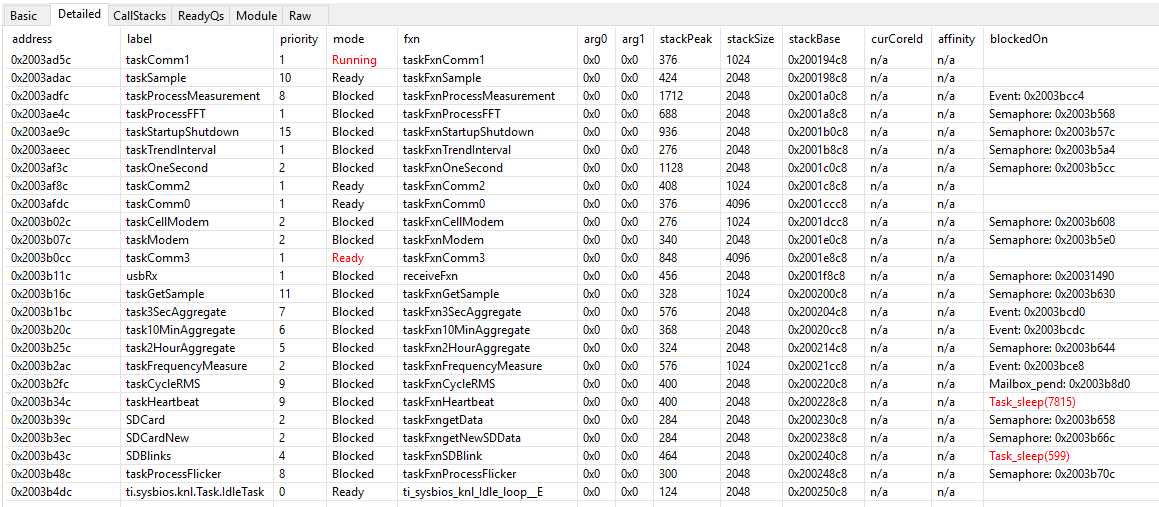Other Parts Discussed in Thread: SYSBIOS
Tool/software: TI-RTOS
Hello!
I'm working on a TM4C129 with TI-RTOS. Our project involves communications, which are currently running slowly due to the amount of processing going on. I'd like to use the optimizations to speed things up, but the optimizations are causing a Semaphore_pend call to hang, even though the related Semaphore_post call is being made.
Under our project's properties, under Build->ARM Compiler->Optimization, I've set --opt_for_speed=5, and that hasn't had any trouble at all. When I set --Ooff, everything runs fine, but the communications are slow. When I set --opt_level=1, everything does run faster, but eventually the Semaphore_pend call never returns, despite the Semaphore_post call being made for the same semaphore.
I've set all of our semaphores, events, and mailboxes as volatile, although they're statically set up using the app.cfg file (so I'm calling extern volatile...) Are there any other tricks I need to do for the optimizations to run properly? I'm currently using CCS 7.4.0.00015 with compiler TI v16.9.7.LTS.
Thanks for your help!
- Tom


